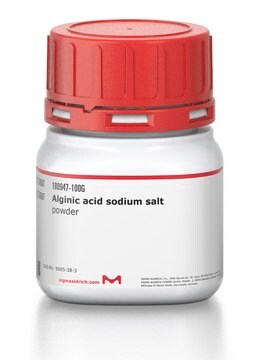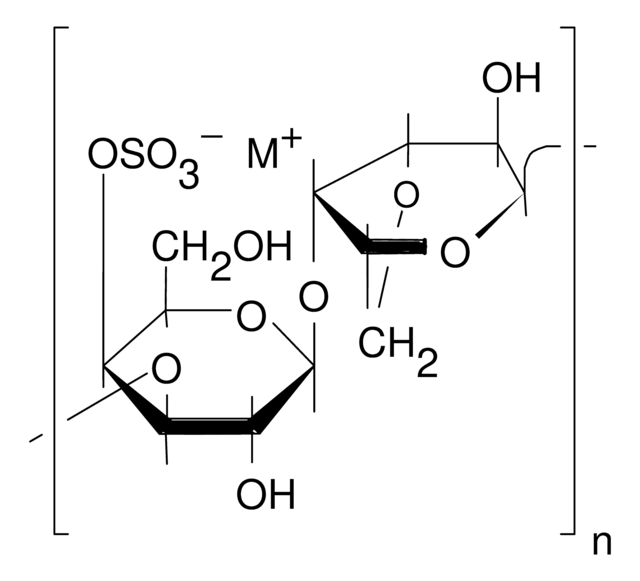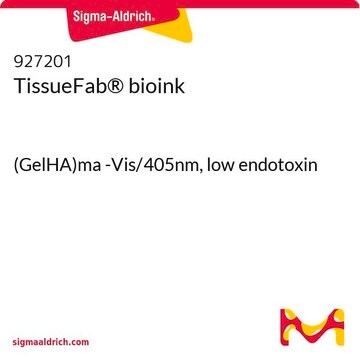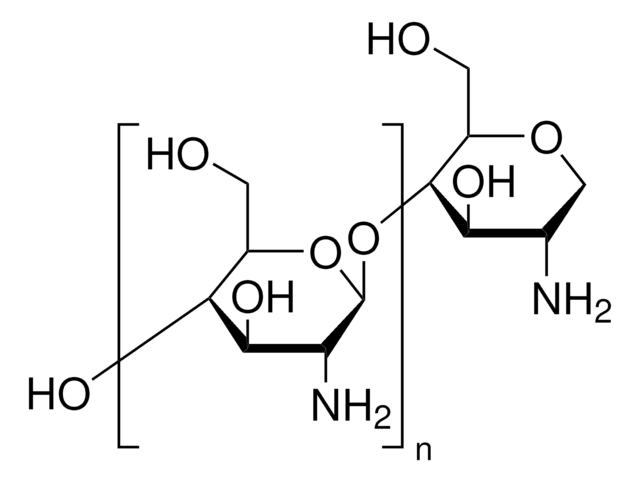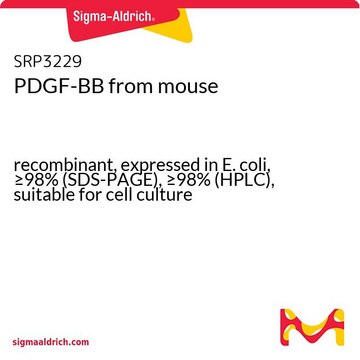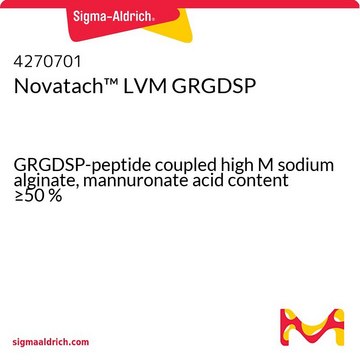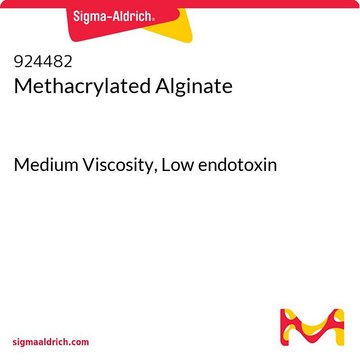おすすめの製品
詳細
TissueFab bioink -(GelAlg)ma-Vis/405nm, low endotoxin is an alginate methacrylate based bioink for 3D bioprinting applications. The formulation is optimized for 3D bioprinting of tissues and constructs using extrusion based 3D bioprinters. The bioink can be can be used to bioprint cell-laden hydrogels in your desired shape without any supporting material. The crosslinking of printed structures can be done in a single step using visible light mediated photocrosslinking. This bioink has applications in 3D cell culture, tissue engineering, and regenerative medicine.
This bioink is derived from natural polymers − alginate and gelatin. Alginate also known as sodium alginate or alginic acid, is a natural biopolymer obtained from brown algae. Alginate is a natural polysaccharide widely used in tissue engineering. Gelatin contains bioactive peptide sequences similar to native extracellular matrix which promotes integrin mediated cell adhesion and MMP sensitive enzymatic degradation which are essential for cellular functions such as migration, proliferation and differentiation.
Low Endotoxin, low bioburden: Endotoxins have been demonstrated negatively impact cellular growth, morphology, differentiation, inflammation and protein expression. Bioburden is defined as the number of contaminated organisms found in a given amount of material. We test each lot for endotoxins as well as total bioburden (aerobic and fungal) to minimize unwanted interactions. For more information: https://www.sigmaaldrich.com/US/en/technical-documents/technical-article/microbiological-testing/pyrogen-testing/what-is-endotoxin
This bioink is derived from natural polymers − alginate and gelatin. Alginate also known as sodium alginate or alginic acid, is a natural biopolymer obtained from brown algae. Alginate is a natural polysaccharide widely used in tissue engineering. Gelatin contains bioactive peptide sequences similar to native extracellular matrix which promotes integrin mediated cell adhesion and MMP sensitive enzymatic degradation which are essential for cellular functions such as migration, proliferation and differentiation.
Low Endotoxin, low bioburden: Endotoxins have been demonstrated negatively impact cellular growth, morphology, differentiation, inflammation and protein expression. Bioburden is defined as the number of contaminated organisms found in a given amount of material. We test each lot for endotoxins as well as total bioburden (aerobic and fungal) to minimize unwanted interactions. For more information: https://www.sigmaaldrich.com/US/en/technical-documents/technical-article/microbiological-testing/pyrogen-testing/what-is-endotoxin
包装
10 mL in HDPE bottle
法的情報
TISSUEFAB is a registered trademark of Merck KGaA, Darmstadt, Germany
保管分類コード
10 - Combustible liquids
WGK
WGK 3
適用法令
試験研究用途を考慮した関連法令を主に挙げております。化学物質以外については、一部の情報のみ提供しています。 製品を安全かつ合法的に使用することは、使用者の義務です。最新情報により修正される場合があります。WEBの反映には時間を要することがあるため、適宜SDSをご参照ください。
Jan Code
927228-10ML:
927228-BULK:
927228-VAR:
最新バージョンのいずれかを選択してください:
ライフサイエンス、有機合成、材料科学、クロマトグラフィー、分析など、あらゆる分野の研究に経験のあるメンバーがおります。.
製品に関するお問い合わせはこちら(テクニカルサービス)
